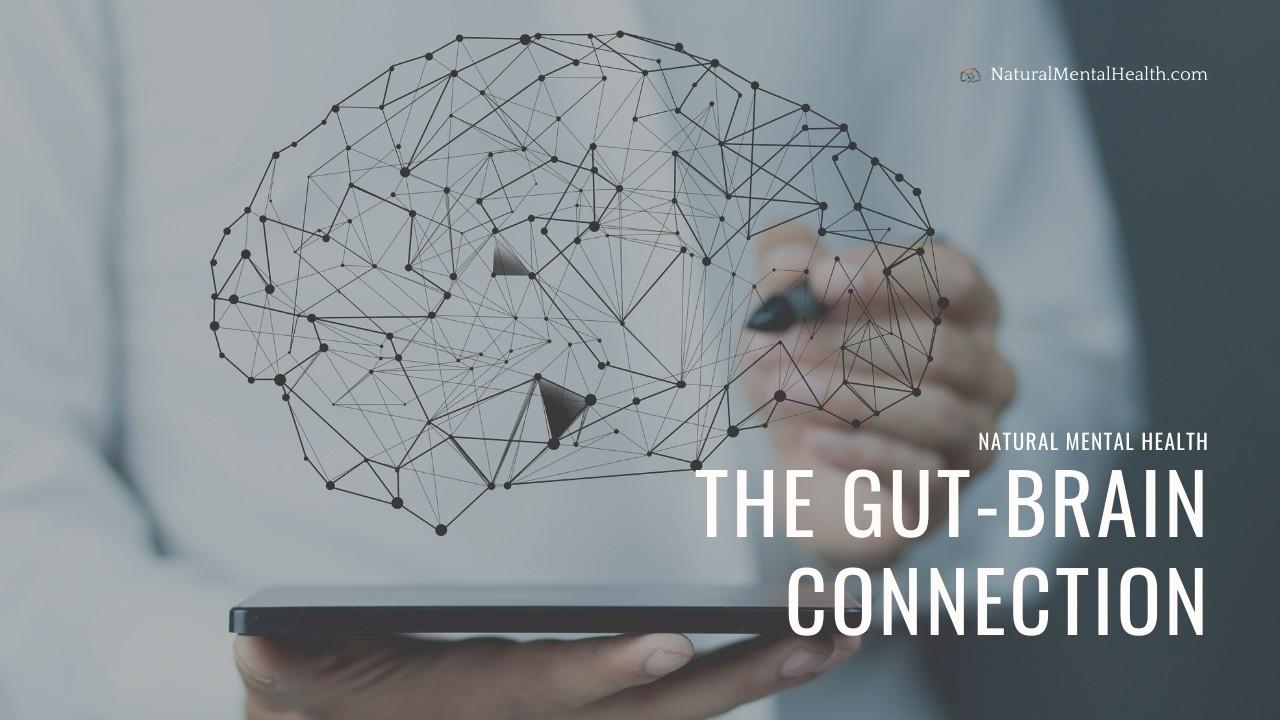
The Gut-Brain Connection
Jul 08, 2020The brain and the gastrointestinal (GI) tract are intimately connected and communicate constantly. Imbalances that have their origins in the GI tract can dramatically affect brain function and can cause or contribute to depression, anxiety, and inattention.*
Studies over the past decade have established that, aside from the brain, the GI tract has more nerve cells than any other organ or system in the body. For this reason, the GI tract is sometimes called the “second brain.” Almost all of the neurotransmitters that are made in the brain are also manufactured in the GI tract, including 90% of the body's serotonin and 50% of its dopamine! The GI tract also houses approximately 70% of the immune system cells in the body. Additionally, our gut is home to billions of bacteria (and other organisms) that are designed to live in harmony with us. This internal world of organisms is called the "microbiome." Our gut bacteria help us make vitamins, regulate our immune system, and digest food properly. Knowing all this, it's easy to see why gut health is critical to mental health as well as overall health.*
Common GI tract health issues that can impact mental health include*:
- Leaky Gut Syndrome: A breakdown of the normal, healthy cell barrier/lining of the GI tract.*
- Dysbiosis: A condition where the ratio of unhelpful (pathogenic) bacteria in the GI to helpful (probiotic) bacteria is out of balance.*
- Food Allergies/Sensitivities: Conditions where foods and food additives cause immune system dysregulation, which can result in inflammation in the body and brain.*
- Micronutrient Deficiencies: When low quality/diversity of foods and/or other systemic illnesses and malabsorption issues lead to low levels of key vitamins and minerals necessary for normal brain function and neurotransmitter production.*
The NMH digestive health checklist.
First, download and review our simple digestive health checklist below to evaluate your digestive health and habits here.
If your checklist responses indicate healthy digestion, congratulations! You're already doing something incredibly valuable for your mental (and physical!) health. If the checklist does show some areas for improvement, this Digestion section is for you. It includes resources for nourishment, movement, and sensory awakening practices specifically designed to help you build healthy habits and heal your digestive system.
Important note: Be sure to talk with your doctor if you have significant GI symptoms such as abdominal pain, nausea, vomiting, reduced appetite, weight loss, diarrhea, or constipation.
Build a Strong Gut Microbiome
The gut microbiome is incredibly important to overall health. It supports functions of digestion, motility, carbohydrate breakdown, vitamin production, amino acid synthesis, immune system regulation, and even detoxification functions.*
The bacterial diversity of the microbiome is related to how healthy you are--the more diverse the better. A low diversity of bacteria in the GI tract is also associated with higher levels of body fat and inflammation.1 The best way to boost diversity in your digestive tract is to consume a diet filled with a wide variety of foods, including fermented foods.*
The Resilient Diet, our basic dietary practice, supports diversity in your digestive tract and is a great tool to build a strong gut microbiome. If you scored low on the Digestive Health Checklist, you can jump straight into using the Resilient Diet to guide your daily nutrition.
Use Probiotics and Prebiotics Occassionally
Your gut's microbiome can become unbalanced due to a lack of helpful bacteria or overabundance of unhelpful bacteria (pathogenic bacteria, fungi, or parasites). When this occurs, it can be helpful to re-balance the microbiome with probiotics (the healthy bacteria) and to boost the necessary nutrients these healthy bacteria need to survive and thrive with special probiotic foods called prebiotics.*
It's best to eat a diverse diet and have exposure to a variety of appropriate micro-organisms in daily activities to boost your microbiome (see The Resilient Diet). However, supplementation can be very helpful when just diet and daily exposure are not enough, such as after an acute illness, after a course of antibiotics, when experiencing certain bothersome GI symptoms, or due to unhealthy dietary practices.*
Probiotic Supplements from Fullscript, our partner store
Please note: The product links in this blog go to our partner store, Fullscript (with an ongoing 10% discount for you + free shipping on orders over $50). You must have an account to view products and shop. Create your free account at: https://us.fullscript.com/welcome/nmh/signup. Learn more about Fullscript here.
Multi-Probiotic 40 Billion
Multi-Probiotic® 40 Billion contains 16 beneficial strains of Lactobacillus, Bifidobacterium and Streptococcus cultures, including the clinically researched Bifidobacterium lactis HN019 that supports gastrointestinal and immune function. Also included in the synbiotic blend is scFOS® prebiotic fiber, which is well tolerated and works synergistically with probiotics to flourish in the intestinal tract.These probiotics are resistant to both acid and bile and undergo a patented cryoprotectant stabilization process for shelf stability.*
*Note: Some of the supplements discussed in this article can cause side effects, but many people tolerate them much better than prescription medications. They are generally considered safe, however, they should not be started without your doctor’s knowledge and supervision. If you are taking medication already, be sure to talk with your doctor before adding any of these items. If you are considering going off medication, remember never to stop your medication suddenly—always consult with your doctor about how to safely taper off any psychiatric medication. See terms. These statements have not been evaluated by the Food and Drug Administration. This product is not intended to diagnose, treat, cure, or prevent any disease.
RELATED ARTICLE
Exercise to Keep Your Digestive Tract Healthy
Exercise can help support digestive health and function in many ways including but not limited to improving blood flow throughout your digestive system and the rest of your body; strengthening your abdominal muscles which assist digestion; and activate your digestive tract and stimulate muscles that propel digestive waste through your intestines. Read more.
RESOURCES
1. Fang, S., & Evans, R. M. (2013). Microbiology: Wealth management in the gut. Nature, 500, 538–539. doi:http://dx.doi.org/10.1038/500538a









